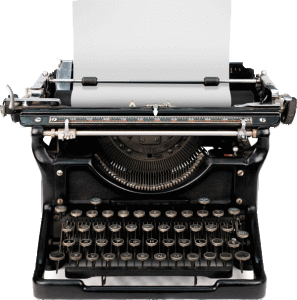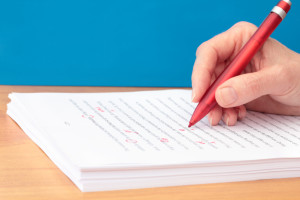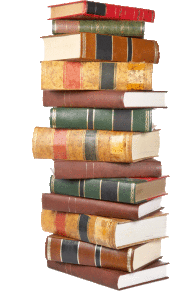5 Tips for How to Start a Writing Group Plus The Origins of #BookSquad
 Do you have a community of writers you can rely on to push you to meet deadlines and write the best books and articles possible? In this post, you will discover how to start a writing group and the origins of my writing group, #BookSquad.
Do you have a community of writers you can rely on to push you to meet deadlines and write the best books and articles possible? In this post, you will discover how to start a writing group and the origins of my writing group, #BookSquad.
Origins of #BookSquad
One of my big goals for 2015 was to finish my book: America’s First Gateway: Albany and the Making of America.
I have lofty, but achievable (I think) goals for my book. I want America’s First Gateway to be a well-researched, well-written, and accessible book. It should speak to both my colleagues and non-historians.
#BookSquad came about because I need help accomplishing these goals. I need to be around writers who can lend perspective to my project and who will set and hold me accountable for deadlines.
Starting a Writing Group: How #BookSquad Came Together
I expressed my desire to start a writing group to Megan Kate Nelson, a friend and fellow historian. I told her how I wanted the group to be an in-person workshop with a focus on writing well-researched, accessible history books. Megan loved the idea and suggested that we invite Kevin Levin to join us. He accepted our invitation.
Not long after I spoke with Megan and Kevin, I had lunch with Heather Cox Richardson. We met to discuss digital public history; Heather is a co-founder of the fantastic digital history magazine We’re History. During our conversation, I mentioned how I was starting a writing group with Megan and Kevin. Heather asked if she could join us and suggested that we invite Seth Jacobs, her colleague at Boston College, too.
 Within a week or two, I had found four historians who shared my writing goals and who wanted to participate in a group where we could help each other achieve them. As I reflected upon my good fortune, I realized that our group consisted of one historian of early America (me), three historians of the Civil War Era (Megan, Kevin, and Heather), and one historian specializing in twentieth-century United States diplomatic history (Seth). This felt unbalanced so I invited Sara Georgini to join us.
Within a week or two, I had found four historians who shared my writing goals and who wanted to participate in a group where we could help each other achieve them. As I reflected upon my good fortune, I realized that our group consisted of one historian of early America (me), three historians of the Civil War Era (Megan, Kevin, and Heather), and one historian specializing in twentieth-century United States diplomatic history (Seth). This felt unbalanced so I invited Sara Georgini to join us.
Sara works as an Assistant Editor at the Adams Papers Documentary Editing Project. Although she trained as an historian of 19th-century American religion, her work with the Adams Papers has provided her with a great command of the historiographies for both early America and early 20th-century United States history. She also interacts with members of the public on a regular basis.
Our first meeting took place at Heather’s house in June 2015. We met over dinner and used the meeting as a chance to get to know each other. We also established the format for our group: monthly meetings; dinner, drink, and socializing first; writing workshop during dessert. This format works well for us. We socialize for the first 60-90 minutes of our meeting and then spend the next 60-90 minutes having a frank conversation about one member’s workshop submission.
After our first meeting, we gained two more members and our name, #BookSquad. Nina Silber (historian of the Civil War Era) asked to join us after seeing Megan post about our first meeting on Facebook. Tom Thurston (historian of 20th-century United States History) asked to join after seeing Heather post about a subsequent meeting. Sara dubbed us #BookSquad in her Facebook post, which we adopted and, for whatever reason, always write as a hashtag.
5 Tips for How to Form a Writing Group
1. Define your goals: What do you want to accomplish with your writing and what do you want to get out of working with a writing group?
You need answers to these questions so you can find likeminded writers and get the most out of your writing group.
2. Find likeminded people: The best writing groups consist of writers who work on similar genres and who share similar goals.
The needs of a poet differ from those of an historian. In my experience (#BookSquad is my fourth writing group), it helps when you work with people who work on similar genres. This doesn’t mean that everyone in your group needs to be an historian, but you may find it helpful if everyone in your group has a serious, non-fiction project so you can assist each other with research and methodology questions.
In terms of where to find potential members, start with your personal network. Once you figure out what type of writing group you want to form or join, ask your friends and colleagues whether they have or would like to join a group like you described.
3. Meet regularly: Find a schedule that works for you.
Whether you form a virtual writing group or an in-person writing group, be sure you meet regularly. Regular meetings will help you stay motivated and accountable when it comes to achieving your writing goals.
 4. Find balance between project similarity and diversity: Work with people you wouldn’t normally work with.
4. Find balance between project similarity and diversity: Work with people you wouldn’t normally work with.
As an early American historian, I don’t often engage with the historiography of the Civil War or twentieth century. In fact, I haven’t really engaged with these historiographies since I passed my comps in 2007.
Being in a group with so many mid-to-late 19th-century specialists can be both daunting and interesting. When one of the 19th-century historians workshops a chapter, the majority of the group starts in on whether the chapter addressed the important and recent works in their field. They also nitpick facts. This is fun to watch and I learn a lot, but Seth, Tom, and I cannot help our friends on the same level.
Instead, we tell them where we didn’t understand something because we are not so well versed in the historiography or where there is a similar example in early American or twentieth-century U.S. history that they might find helpful. These outside perspectives prove useful when workshopping the chronology and structure of a chapter.
5. Create a safe workshop environment: Writing is a personal activity; you present your thoughts and ideas for the world to consider. Be sure you join or start a writing group that creates a safe, honest, and respectful place for workshopping members' writing.
#BookSquad has created a safe and homey workshop space: We meet around the dinner table.
The person who submitted their work hosts the meeting at their house and cooks the main course. Every member brings an appetizer, side dish, and/or bottle of wine to add to the meal. We share food, personal stories, and conversation around the table. When we are done eating, we clear the table and sit down to work.
Our workshop is friendly, but intense. We have a respectful, but honest conversation about the submitted chapter. We discuss historiography, structure, and writing style. The nature of writing makes the workshop personal, but the social hour beforehand helps us remember that we are all friends offering advice that will make the offered chapter better.
Conclusion
Writing groups will help you improve your writing and help you increase your productivity. However, a good writing can be hard to find. Sometimes finding the right group involves trying out several different groups before you find the right one. You may also need patience while you seek out members for your ideal group.
Unfortunately, I will not meet my goal of finishing America's First Gateway in 2015. However, with the motivation and accountability provided by #BookSquad, I am confident I will make significant progress between now and the end of 2016.
Share Your Story
Do you belong to a writing group? How did you find it? What genres do its members write?